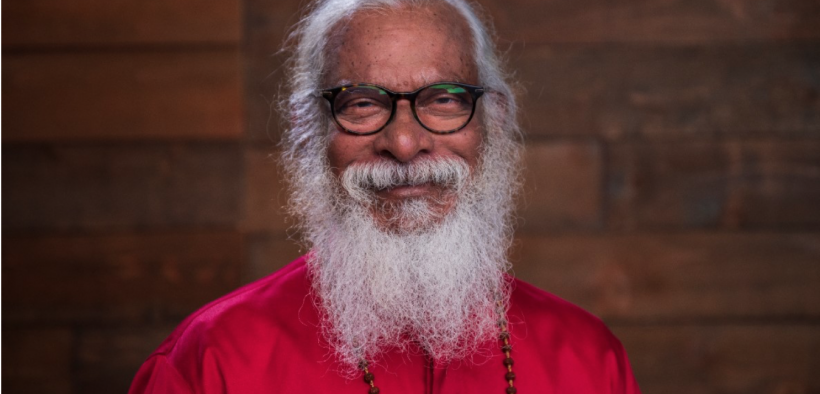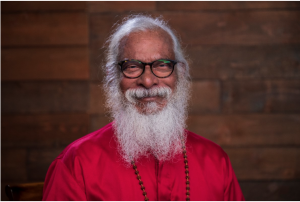Gospel for Asia Changes Name, But Questions About Practices Remain

Editor’s Note: This article was revised on May 4, 2021, to reflect updated information.
It has been a rough seven years for Gospel for Asia (GFA), the ministry founded by K.P. Yohannan in 1979.

- GFA, a charter member of the Evangelical Council for Financial Accountability (ECFA), was kicked out of ECFA in 2015 for misleading donors and mismanaging finances.
- In 2017, Indian officials canceled the registration of four different charities Yohannan founded and funded with money from GFA donors: Believers Eastern Church, Ayana Charitable Trust, Love India Ministries, and Last Hour Ministry. These groups could no longer receive foreign funds.
- In 2019 GFA settled a class action lawsuit brought by American donors for $37 million, even though it said it was innocent and claimed it would have prevailed if the case had gone to trial.
- In 2020 Canadian donors filed a $170 million lawsuit demanding GFA return $20 million in donations diverted to construct the ministry’s $45 million headquarters near Dallas, plus damages.
- In 2020 and 2021, authorities in India raided dozens of properties and seized $800,000 in cash as part of an investigation into fraud and money laundering.
GFA has repeatedly denied wrongdoing. Now, hopes to change the narrative by adopting a new name—GFA World—and announcing that it plans to expand its work into Africa.
For years, Johnny Moore of The Kairos Company loyally served as GFA’s chief media spokesman and defender. When the ECFA’s investigation found that GFA hoarded as much as $259 million rather than spending the donated funds to the field, Moore said GFA was “misunderstood” by those who didn’t appreciate the “creative” ways it ran its operations, and claimed the ministry “should have been heralded for the fact that they kept significant cash reserves in complicated environments.”
Access to MinistryWatch content is free. However, we hope you will support our work with your prayers and financial gifts. To make a donation, click here.
Now, Moore — who still handles PR related to GFA’s legal troubles — works alongside PR firm InChrist Communications to enhance GFA’s image, beginning with a January story called “25 Christian Leaders Affirm Gospel for Asia’s Integrity & Credibility.” The story praised Yohannon, saying his “humility, and integrity have set a godly standard for others to follow.”
The story featured positive quotes from David Mains, George Verwer, Patrick Johnstone, and Dan Wooding (who died in March 2020), along with quotes from the publicists themselves: Johnny Moore, and Palmer Holt, president of InChrist Communications. The story also featured an endorsement from Francis Chan, who was identified as a “pastor and author” but was not identified as a GFA board member.
However, none of the 25 leaders specifically addressed GFA’s legal problems in the U.S., Canada, or India, and only three of them actually addressed issues of integrity or credibility. One of the 25 leaders told me that neither GFA nor InChrist Communications ever contacted him about using his comments in the story affirming GFA’s integrity.
GFA’s name change to GFA World, was announced in an April 14 press release, which also announced plans to begin work in Africa.
But the release was short on specifics and long on aspiration, saying only that GFA World:
- “expects to begin work in multiple African nations this year;”
- “plans a surge of compassion and healthcare projects across Africa;”
- “plans to introduce its trademark ‘Jesus Wells’” (to provide drinking water);
- and “plans to train indigenous workers in Rwanda and other countries.”
“One of our goals is to help tens of thousands of children (in Africa),” said the release.
Spokesman Palmer Holt refutes the notion that the motive for the name change is to “lessen blowback from the lawsuit.” He also said that the name GFA World “soft-launched” more than a year ago. He says a key reason for the name change is that “word ‘Gospel’ brings a security risk to it.” Further, he says, “Lots of ministries, like Cru, have moved away from trigger-word names. Others like OM, SIL, SIM have shortened to acronyms, once they are well-established.”
Canadian lawsuit slowed
In February 2020, Greg Zentner, a Canadian donor, filed a $170 million class action suit that calls GFA “an international fundraising syndicate.” The suit seeks return of $20 million in funds Canadians donated to serve the poor in India but was instead used by GFA to build its $45 million Texas headquarters. The suit also seeks $100 million in damages and $50 million in punitive damages. GFA leaders had claimed the $20 million was provided by an anonymous donor.
The suit alleges serious violations of law, ethics, and donor trust:
Thousands of well-intentioned Canadians were duped into collectively donating tens of millions of dollars to an international fundraising syndicate operating in Canada known by a variety of names including as Gospel for Asia, Gospel for Asia Canada, GFA, and, later, as GFA World. The donors were convinced by the representations of the Defendants that 100% of donations designated for use in the field would be used in the field, and that their donations would be used for specific charitable purposes to help the poorest of the poor in India. Instead, the funds were converted by the Defendants for their own use, including for the construction of a luxurious compound and personal residence in Texas, USA. In this action, the Canadian donors seek to recover these donations that were collected through fraud or misrepresentation.
The Canadian suit also charges that in 2015 and 2016, executives of GFA Canada created five new nonprofits (Little Hills, The Blind See, The Lame Walk, Lift Up Their Voices, and The Sick Healed) that may have received diverted GFA funds.
In March 2020, GFA filed for creditor protection, arguing the coronavirus and the negative publicity from the Canadian lawsuit had led to a decline in donations. The filing allows GFA to restructure its finances and avoid bankruptcy.
An initial hearing to determine if donors qualified as a class was scheduled for March 2021, but was postponed after GFA dropped its former legal firm and hired new attorneys, according to Zentner’s attorney, John McKiggan. McKiggan now expects a hearing on the certification motion to take place in June, with the trial possibly to begin in early 2022.
Indian raids raise pressure
The Canadian lawsuit claims that some $94 million GFA sent to India was never reported to Indian tax authorities. Millions were transferred to Believers Eastern Church, a denomination Yohannan founded in 1993, described as a “branch” of GFA. Believers Eastern Church in turn spent millions constructing hospitals and schools, and buying up additional properties, including a rubber estate.
Yohannan’s role in the church has also come under fire, with GFA workers saying the man who called for a simple, frugal ministry lifestyle in his popular 1986 book Revolution in World Missions now acts like a mini-Pope who demands people call him “eminence” and requires newly ordained bishops to kiss his ring.
In November 2020, Indian tax officials raided 66 Yohannan-related properties, seizing $800,000 in cash, some of which was stashed in the trunk of a car. The officials said Yohannan operates about 30 trusts across the country—many existing only on paper—used to launder and divert funds for personal and other illegal expenses.
GFA responded by claiming “the visit was wildly mischaracterized on social media,” and that it was being persecuted by India’s Hindu nationalist government. GFA requested that people “not spread false information that can damage the good work the church is doing for the uplifting of the poor and needy, especially during this COVID-19 season.”
Indian government officials returned in March 2021, seizing the church-owned Cheruvally Estate situated on 2,000 acres of land.
Yohannon was summoned to appear before Indian authorities last December, but he never showed up, claiming he was unable to travel. It is believed that he now lives at GFA World’s Texas campus, home to more than 80 tax-exempt single-family homes designated for clergy housing. Tax officials for Kaufman County, east of Dallas, are reportedly reviewing the ministry’s tax-exempt status.
It’s not clear what the next steps are in the Indian investigation.
Donor appeals promote designated gifts
GFA World no longer claims it sends 100 percent of donations to the field, but it continues to tell donors they can designate gifts to specific ministry purposes while, in fact, donations are pooled and spent as leaders see fit.
Its website still gives donors more than 40 giving options, including monthly sponsorships (children women, or missionaries) and one-time gifts for widows and abandoned children, bicycles, broadcasting, scriptures, tracts, sewing machines, and vocational training.
But the “Financial Integrity & Gospel for Asia” page of the ministry’s website makes clear: “GFA retains discretion to use donated funds in any manner that serves the charity’s objectives, regardless of any particular designation, but we do so knowing your donation is a sacred trust that requires careful stewardship.”
The ministry’s financial integrity web page also says, “We will provide a copy of our current audited financial statement upon written request.” But it has not responded to Ministry Watch’s request.
A long, difficult road
It’s possible that none of the lawsuits and investigations would have happened if not for Nova Scotia pastor Bruce Morrison, who was “all-in” on his support for GFA during the 20 years his church gave the ministry $150,000. Morrison also traveled to India to see GFA’s work, and his daughter joined the ministry for more than two years.
“This has been a journey that I would never have imagined, and never have chosen,” said Morrison, who spent weeks studying thousands of pages of legal documents that GFA’s former attorneys insisted he read before giving a March deposition in the case, which was brought Greg Zentner, a church member. The deposition never happened.
Over the years, there were issues that concerned Morrison, but he chalked them up to differences in the ways American and Indian Christians do ministry.
Morrison isn’t sure when GFA’s problems started growing, but he began looking more closely in 2014 after current and former GFA workers contacted him about the problems, including a growing Yohannon personality cult, that they documented on the website, GFA Diaspora.
“At first, I dismissed this as complaints from a bunch of disgruntled people.” But the more he looked, the more he found, finally coming to the heartbreaking conclusion that GFA was “the biggest Protestant charity scam in Canadian history.”
Some Christians told Morrison that exposing GFA’s crimes would harm Christianity’s credibility, but he pushed back, saying, “When the church does expose these kinds of issues, it can actually increase credibility, because people conclude, ‘OK, I guess some people in the church do have a conscience.’”
“I take no pleasure in this at all,” he says. “On the other hand, when I can do anything to resolve an injustice or expose a fraud, I’m not one to be passive.”



